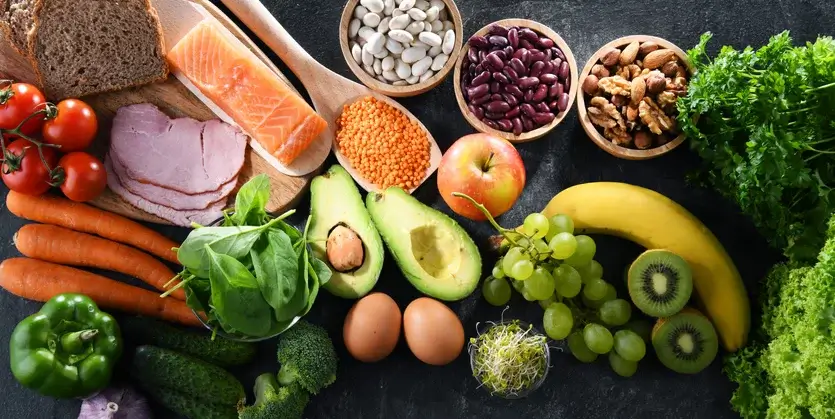“It’s just all in your head” is what patients seeking treatment for anxiety or depression frequently hear. They might be given medication and a list of therapists for cognitive behavioral therapy or similar treatment. Root causes of the symptoms may not be explored, nor will the effects on the patient’s life or the sometimes cyclical nature of the condition.
One relationship has emerged over the past couple of decades: nutrition and its relationship with anxiety and depression. Not getting in enough nutrients can eventually contribute to symptoms like irritability, a lack of focus, and low mood. At the same time, these conditions can also cause patients to neglect what they eat, causing their symptoms to worsen.
Learn more about the relationship between nutrition and anxiety and depression with CentreSpringMD.
Diet and Mental Health
Spurring a subfield called nutritional psychiatry, the body of evidence around diet and nutritional health continues to grow. Long a tenet of integrative medicine, what you eat affects your health on a holistic scale – including how you feel, your alertness, and your mood:
- Research has found a correlation between greater intakes of fruit, vegetables, whole grains, fish, low-fat dairy and antioxidants with lower levels of depression. In the other direction, those primarily subsisting on a diet of red meat, refined carbohydrates and high-fat foods tend to experience depression at higher rates.
- Studies have also shown that anxiety, depression and mental health conditions further affect what we eat. In one study, researchers examining a group of undergraduates in the U.K. found a correlation between self-reported depression or anxiety and an increase in calories from sugars and fats. Those who decreased the amount of calories from these sources saw their symptoms improve.

- Unfortunately, sugars, fats and other highly processed foods can trigger a dopamine response in the brain, giving you a temporary sense of pleasure. Once this sensation goes away, you seek out these foods to continue experiencing this high.
- Sugar, fats and other processed foods have a higher likelihood of fueling inflammation throughout the body and nervous systems. This relationship is believed to contribute to various mood disorders and further explains why many eat when stressed or constantly seek out a pick-me-up from desserts, other foods high in sugar or fat or coffee. Individuals may center their diet around these foods based on how they immediately feel afterward. However, long-term effects include weight gain, a growing sensation of fatigue and sluggishness and less mental clarity. This cyclical nature and decreasing motivation and energy can make breaking this habit a challenge for many.
- As more about the brain-gut relationship emerges, an imbalance in the gut microbiome may potentially stimulate the vagus nerve (also known as the vagal nerves), which may alter how the brain produces chemicals, including serotonin.
Mental Health’s Effects on Nutrition
Anxiety and depression frequently impact a patient’s nutrition, including how often they eat and the types of foods they prepare:
- As a common side effect, depression and anxiety can decrease appetite. Individuals consume fewer calories from lower-quality sources: This pattern affects the nutrients they consume and can send their body into a chronic state of stress that transforms mood, reactions, energy levels, and decision-making abilities.
- Individuals consistently deficient in essential vitamins, nutrients, and omega-3 fatty acids have a higher likelihood of developing and living with depression and other mental health conditions.
- Those who neglect their diets due to lower levels of serotonin tend to engage in generally impulsive and aggressive behaviors – including in relation to their nutrition and life overall. Consuming folate, B12, omega-3 fatty acids, and magnesium can help reverse these symptoms while addressing nutritional deficiencies.
Considering Nutrition for Managing Anxiety and Depression
In general, a diet low in processed foods, sugars and fats and high in fruits, vegetables and lean proteins delivers the nutrients that can control irritability, a lack of focus and other mood concerns associated with depression and anxiety. At the same time, this type of diet provides the fuel your body needs to generate new proteins that form the building blocks for muscles and other tissues.

To address mental health through nutrition:
- Consume a variety of foods, including types of foods – for instance, fruits, vegetables and whole grains over refined carbohydrates – and the meals you prepare on a daily basis.
- Look toward foods that increase energy levels – for instance, complex carbohydrates like brown rice, quinoa and sweet potatoes, as well as lean proteins like fish, hard-boiled eggs, chicken, nuts and seeds.
- Dark, leafy green vegetables, legumes like beans and lentils and foods high in omega-3 fatty acids help enhance brain health.
- Get in healthy fats, including from olive and coconut oils and avocado.
- Add vitamins and supplements to your diet, including for B-vitamins, magnesium, omega-3 fatty acids and amino acids, a nutrient that directly aids your body’s production of serotonin and other neurotransmitters.
- Limit high-fat, low-nutrient foods, like candy, soda, potato chips, cookies and cake.
- Never shop on an empty stomach, as you’re more likely to make impulse purchases, and instead, make a list ahead of time.
- Practice mindfulness as you eat: Be aware of what you’re eating, how you prepared it and its full taste and texture. In turn, avoid eating on the go or in front of the television.
Address Anxiety and Depression Through Nutrition
Enhance the effects of medications or consider medication-free treatment for anxiety or depression through diet. For direction, turn to CentreSpringMD. We’re a holistic primary care practitioner specializing in integrative family medicine and wellness. Interested in learning more? Contact us today to set up a virtual appointment.
Resources:
https://www.health.harvard.edu/blog/diet-and-depression-2018022213309
https://www.ncbi.nlm.nih.gov/pmc/articles/PMC7400947/
https://www.sciencedirect.com/science/article/pii/S0165178117301981
https://www.ncbi.nlm.nih.gov/pmc/articles/PMC2738337/
https://www.sutterhealth.org/health/nutrition/eating-well-for-mental-health
https://extension.usu.edu/nutrition/research/anxiety-and-depression-can-diet-help
